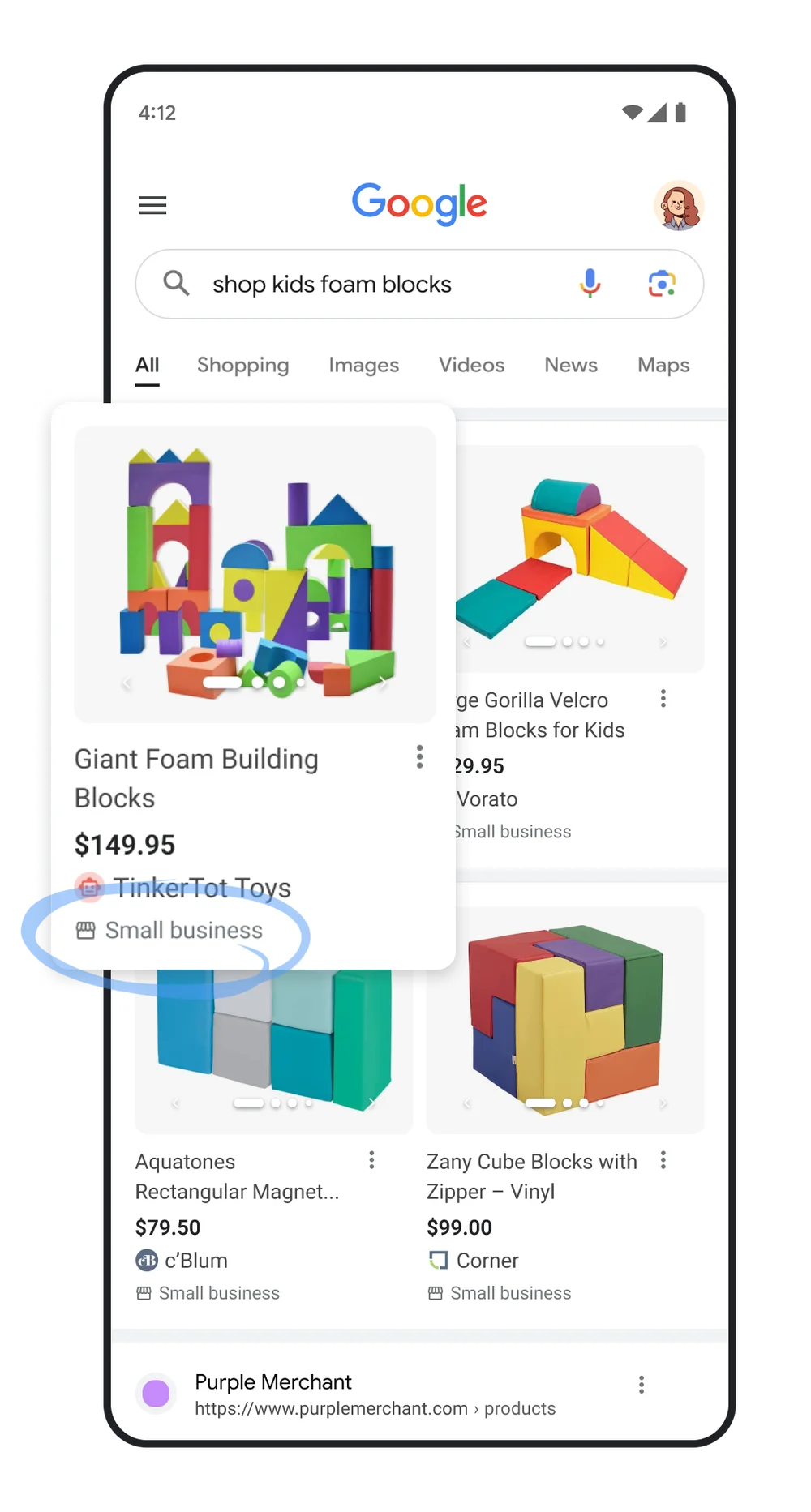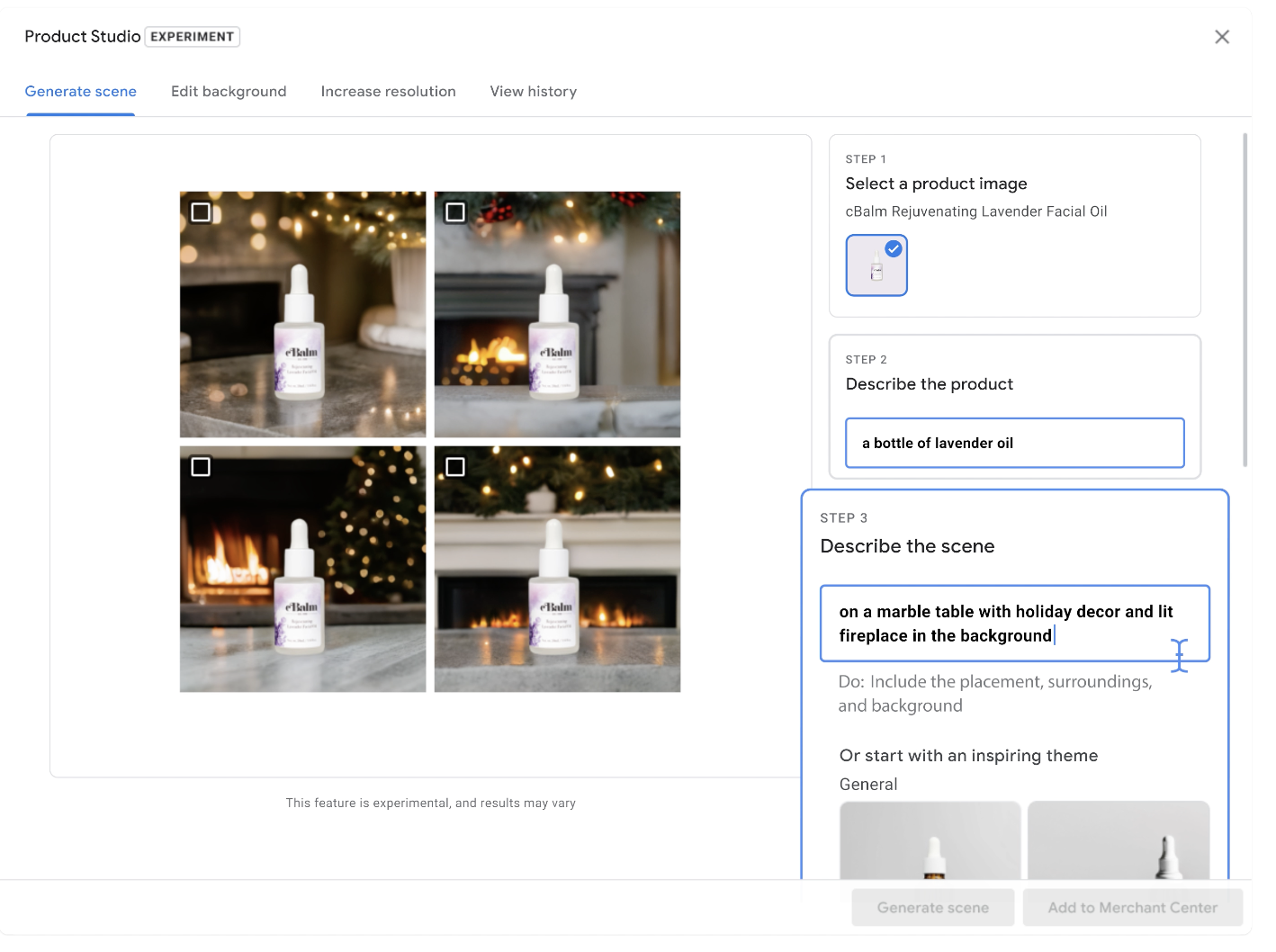What Are AI Agents? And Why Are They Critical to Local Marketing Success?
Local Memo: Google Adds Small Business and Parking Attributes to GBP
Local Memo: Google Adds Small Business and Parking Attributes to GBP
In this week’s update, learn about new attributes in Google Business Profiles; the rollout of the November Core Update; X’s new generative AI chatbot; AI-powered product images from Google and Amazon; the completion of the mobile-first index; and an allegation that AI tools violate copyright laws.
Google Adds Small Business and Parking Attributes to GBP
Google has added a small business attribute to Google Business Profiles, allowing businesses to identify themselves as such. The attribute was added to the list commonly referred to as “identity attributes,” so called because many of them relate to the identity of the business owner — examples include “Identifies as women-owned,” “Identifies as Black-owned,” and “Identifies as Asian-owned.” Two other attributes — “Identifies as Indigenous-owned” and “Identifies as disabled-owned” — were also recently added to the list.
As with all other identity attributes, the small business attribute, when enabled, grants the business a special icon that is displayed in its profile, and that presumably will act as a ranking factor for searches like “small business options for groceries near me.” If such searches prove to be popular — Google says 84% of consumers want to support small and local businesses — they could impact the visibility of small businesses in search, as compared to chains and franchises. The small business attribute will also be available for display in product results via Google Shopping. Google says it will automatically add the attribute to some profiles.
Google’s announcement states that knowledge panels for retailers may also now display “helpful shopping information, like current deals, shipping and return policies, customer service information and ratings and reviews”; these are not the same as business profiles but relate to the overall business as an entity and include online retailers.
In separate news, Google also appears to have added a range of new parking attributes to business profiles, showcasing free and paid options for parking garages, parking lots, and street parking as well as valet parking.

The small business attribute and icon displayed in shopping results, courtesy Google
November 2023 Core Update Rolls Out
Google has followed the October Core Update with the November Core Update, a rare occasion when the company issues two general algorithm updates in subsequent months. The November update began rolling out on November 2. A company statement reads, “We have different systems that are considered core to our ranking process; this month’s core update involves an improvement to a different core system than last month.” According to a post on X from Joy Hawkins, the November Core Update already appears to have had a more significant impact than usual on local search results. The update is expected to roll out over the next few weeks.
X Announces Its Own AI Chatbot, Grok
In a post on Saturday, X announced the launch of its own generative AI chatbot, named Grok. The chatbot, according to the post, is “modeled after the Hitchhiker’s Guide to the Galaxy,” a reference to the comedic sci fi novels by Douglas Adams, has a “rebellious streak,” and will answer “spicy questions” that other chatbots reject. The chatbot is also supposedly connected to real-time content on X. A more detailed announcement on the xAI website states that Grok is powered by a new large language model called Grok-1 that was developed during the last four months, and that its purpose is to serve as a research assistant and a demonstration that AI can be “useful to people of all backgrounds and political views.” The chatbot will initially be released via waitlist to a small group of verified (i.e., paying) U.S. users.
AI Product Images Launched by Google, Amazon
Both Google and Amazon announced new features last week that allow retailers to create product images using AI. Amazon’s version is being made available to select advertisers, and allows them to upload product photos and use AI to add backgrounds to the images for use in ads. Sellers can also use an “enhance with a theme” feature to add decorative elements to the background conveying a theme like “Pumpkin spice.”
Similarly, Google’s new Product Studio lets advertisers add backgrounds to product images; it can also remove backgrounds and improve the quality of images. Google suggests that advertisers use the tool to add backgrounds highlighting the ingredients in a product or to add seasonal imagery. Users of Google’s new Merchant Center Next interface in the U.S. will gain access as Google rolls out the feature.

Courtesy Google
Google’s Mobile-First Index Finally Completed
Google has announced the completion of its mobile-first index, a project that began in 2016. This means that moving forward, all websites will be crawled by Google by visiting their mobile versions first (with a few minor exceptions explained in the announcement). As a result, Search Console will no longer report on the type of Googlebot used to crawl a website, since the mobile version can now be assumed. Barry Schwartz points out that Google made a similar announcement back in May, so it’s unclear what has changed between May and November — but the removal of the desktop version of Googlebot from Search Console suggests that the switch to mobile is now final.
Generative AI May Violate Copyright Laws
The News Media Alliance, a trade association representing 2,000 U.S. and Canadian publishers, is alleging that generative AI tools built by companies like Google and OpenAI are violating copyright laws. According to Danielle Coffey, president and CEO of the association, generative AI “acts as a substitution for our very work. You can see our articles are just taken and regurgitated verbatim.” A report produced by the group has been submitted to the U.S. Copyright Office, which is currently investigating the use of AI.




